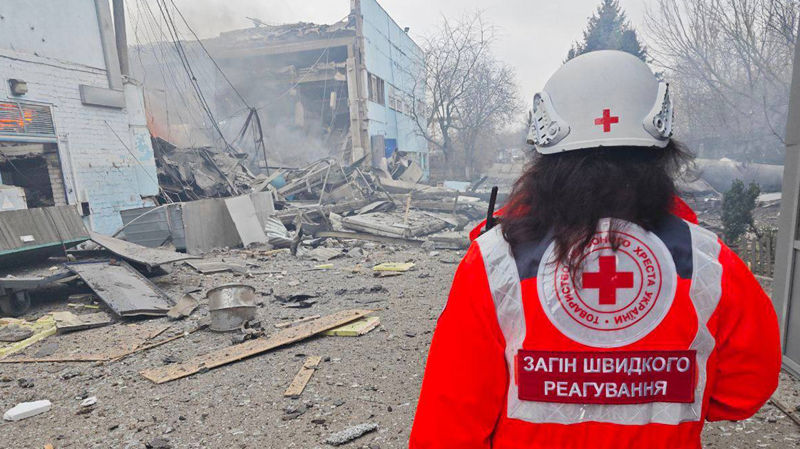Health and safety

The Red Cross’s mobile clinics are often the only protection for people in Ukraine. "Some sparsely populated areas have been left completely deprived of health services."
The road west from the city of Chernivtsi meanders through rolling fields and small villages. The terrain gradually becomes more hilly, until after about an hour's drive, the Carpathian Mountains rise into view in the southwest. There lies the first stop of this field trip, the village of Roztoky.
Many older people have been left alone, as younger people have gone to the front or become refugees.
Arriving in Roztoky, our first stop is the local health centre, from where we continue deeper into the mountains. Winter is coming, but today the landscape of snow-capped mountains is illuminated by the sun. The Romanian border is only twenty kilometres away as the bird flies. The road is covered in mud in one place and ice the next.
Arriving in the small village of Konyatyn, we park our cars in front of a gable-roofed wooden building. Resembling an old village school, the building was once painted in red ochre, but is in dire need of touching up.
"This cottage is where local healthcare services operated out of," says Finnish Red Cross aid worker Heidi Saarinen.
"Now, healthcare is provided by the Red Cross mobile clinic. Here in Konyatyn, the clinic is open a couple of times a month. In Rostoky, it operates every weekday from 9 AM to 1 PM, after which the clinic travels to nearby areas," Saarinen says.
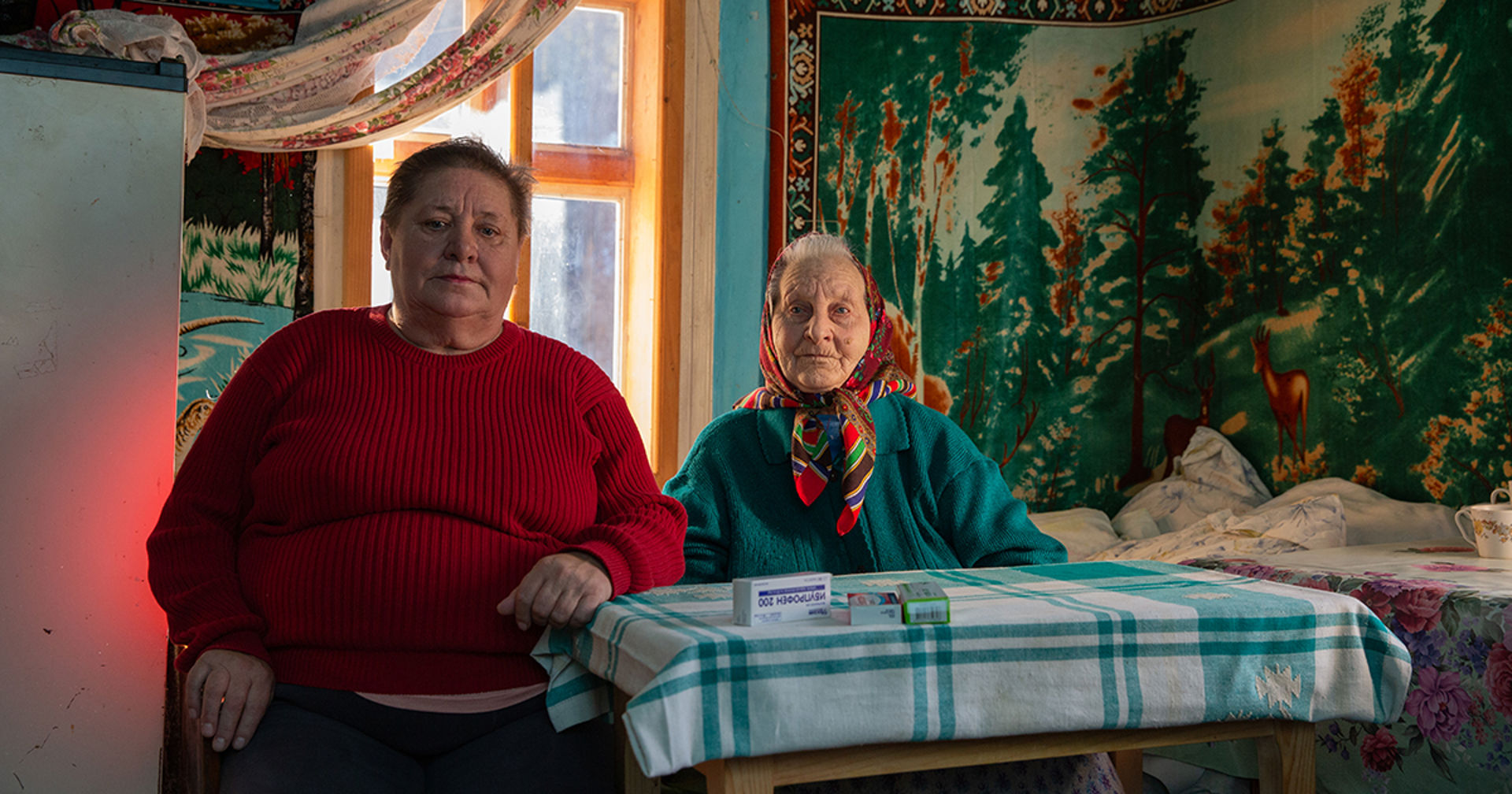
That is why the Red Cross is here this time as well, although with a larger party than usual. Saarinen and her Austrian colleague Christian Diemt work for a health programme supported by the Austrian and Finnish Red Crosses, which covers for local healthcare services that are being severely overworked due to the conflict in Ukraine.
Today, they are on a field trip to collect first-hand information and experiences on the operations of mobile clinics. The party also includes Doctor Oksana Slyzhuk, who works for the Ukrainian Red Cross, Nurses Nanalia Marusiak and Yana Gozhda and drivers.
According to people's needs
The health programme supported by the Austrian and Finnish Red Crosses has focused particularly on mobile clinics operating in both eastern and western parts of Ukraine. In addition to this, the programme has supported the home care of older people.
Some sparsely populated areas have been left completely deprived of health services.
According to Heidi Saarinen, the demand for services is high. It is estimated that since February 2022, the conflict in Ukraine has driven up to seven million Ukrainians to become internal refugees. Most of them have headed to the western parts of the country, away from the front.
"Furthermore, many older people have been left alone, as younger people have gone to the front or become refugees. Many of them need support to cope with everyday life," Saarinen says.
"At the same time, healthcare personnel have had to be concentrated at large hospitals, which has left some sparsely populated areas completely deprived of health services. These gaps are what the project has aimed to fill."
The Red Cross’s mobile health clinics are always staffed by a local doctor, a nurse and a driver. The tasks vary only slightly according to regional needs. In the remote areas of Chernivtsi Oblast, the clinics focus purely on primary healthcare.
"The majority of patients are older people who need treatment for common conditions such as hypertension and diabetes. The clinics also include a dispensary that carries the most typical medicines and medications used to treat common conditions. The treatment and medication are free of charge for the patients," says Saarinen.
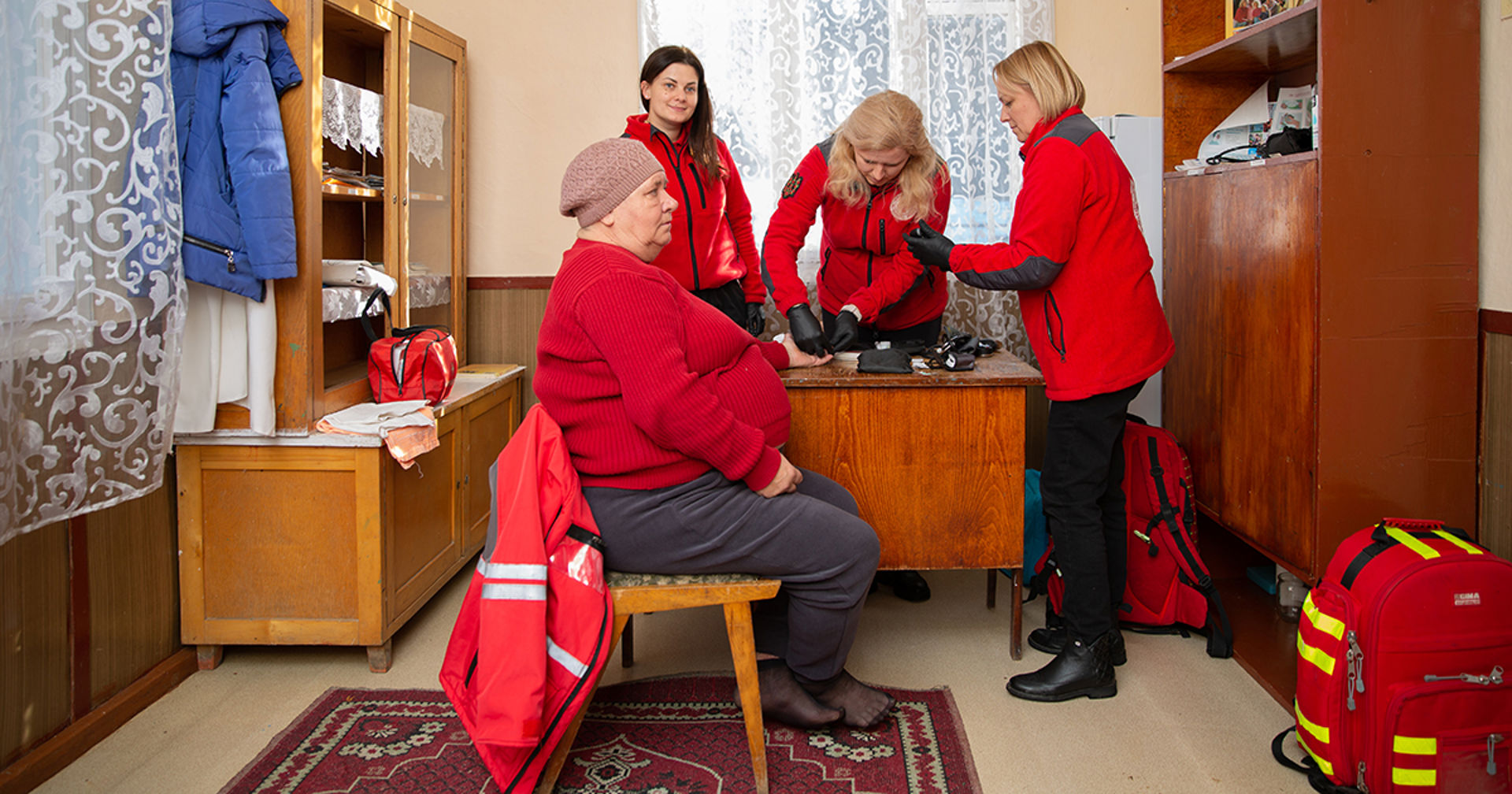
At their peak, there were over 120 mobile clinics operating throughout Ukraine, of which 38 operated under the Austrian and Finnish project.
"We were the biggest supporter of the clinics, but of course it is also a question of division of labour. Other national societies focused on other things, such as rehabilitation services, for example."
Straight in at the deep end
The assignment to the Ukraine health programme was 37-year-old Heidi Saarinen’s first assignment as a Finnish Red Cross aid worker. Before it, she spent over ten years working as a nurse anaesthetist in Finland, England and Saudi Arabia. The idea of becoming an aid worker had been simmering in her mind since she was a teenager.
"I returned from abroad to Finland during COVID and thought that it was now or never. I applied to the Red Cross’s basic training course for aid workers and got accepted. I guess my thinking was that I wanted to make a difference and improve other people's lives."
After a few years in reserve, Saarinen happened upon an advertisement for a healthcare planner’s position in Ukraine. She did not have a lot of time to think about it.
"The thing was that I noticed the advertisement on Sunday and the application deadline was on Monday. I decided then and there to apply and proceeded to spend the night writing my application," Saarinen recalls.
"In the morning, I didn’t think I had much of a chance of being selected. The application looked terrible to me, I had never been on a Red Cross assignment before, and to top it all off, Ukraine was a conflict zone. However, that very same afternoon I got the call!"
Saarinen ended up resigning from her job at the time because the assignment was exceptionally long, almost eighteen months. The job interview was held in July 2023, and in August Saarinen was already in Ukraine.
While the thought of going to a conflict zone gave Saarinen some pause, her concerns were alleviated by the training provided by the Finnish and Austrian Red Crosses. The risks were known and manageable. The journey to Ukraine took her through Warsaw to Lviv, where she spent the night before being taken to Kyiv by the Red Cross.
Technically, Saarinen had been loaned from Finland to the Austrian Red Cross, which had about ten aid workers in Kyiv. In addition to them, it had two representatives in Lviv and Uzhhorod.
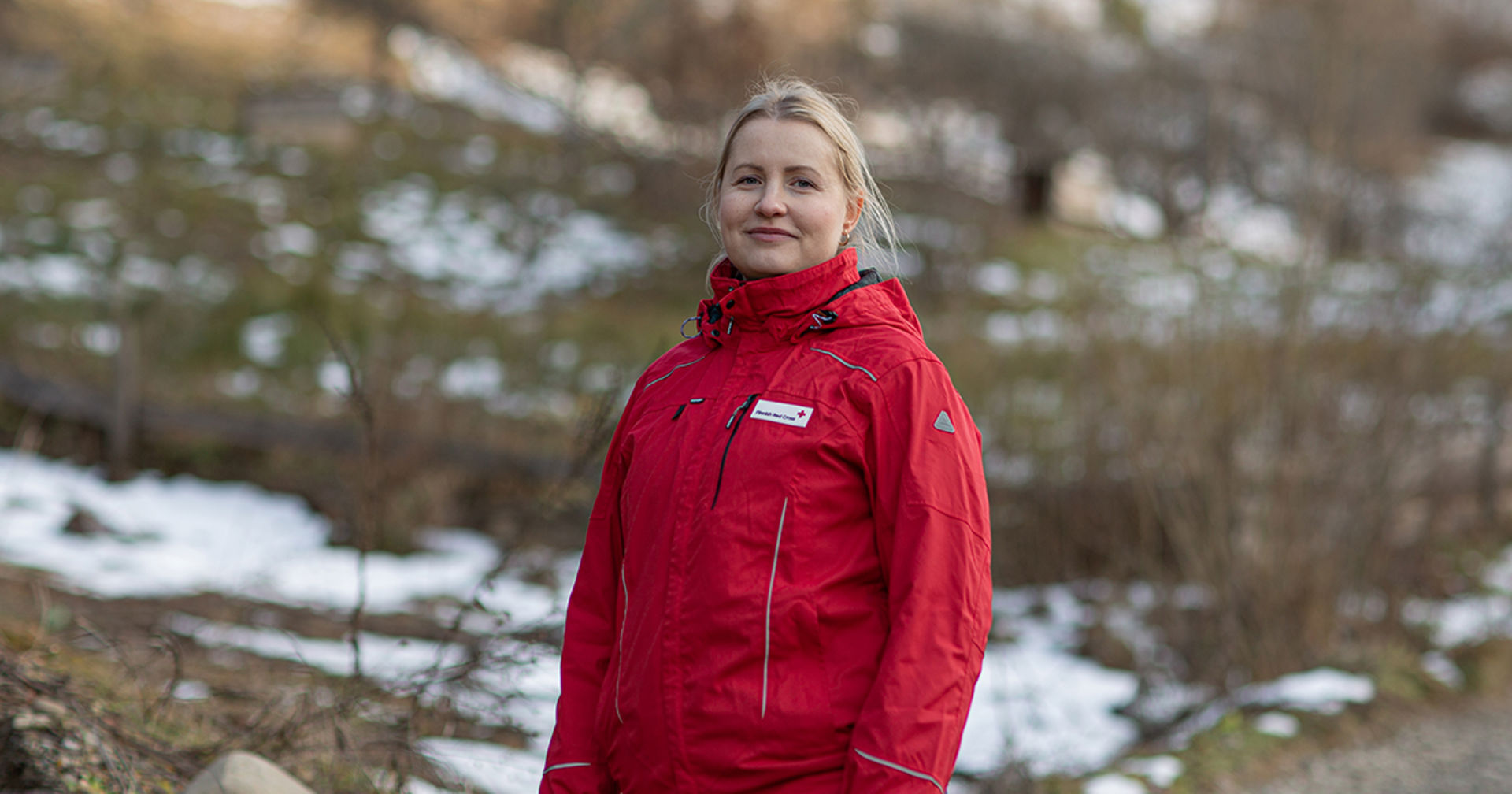
Fatigue starts to set in
The work in Kyiv was carried out in close cooperation with the Ukrainian Red Cross’s Health Department and the International Federation of Red Cross and Red Crescent Societies (IFRC). The first autumn went by fast: there were plans to prepare, people from the Ukrainian Red Cross to meet and field trips to carry out to scope the situation.
During her assignment, Saarinen visited most of the oblasts of Ukraine. Only the Donetsk and Herson regions were off limits to foreigners due to safety reasons.
The reality of Ukraine could be seen and felt in Kyiv as well. On the streets you could see young men, returnees from the front, with amputated limbs. At times the air raid sirens would go off on a daily basis, especially at night.
During her long assignment, Saarinen also witnessed a change in the moods of the Ukrainians.
"The situation has changed significantly for the worse in 18 months. When I arrived in Ukraine and last winter, people were much more energetic and optimistic. Now, with the war having gone on for almost three years, you can see the fatigue."
"Some of my colleagues have also talked quite openly about starting to feel anxious and depressed. They are no longer ashamed of saying it out loud because everyone is in the same boat."
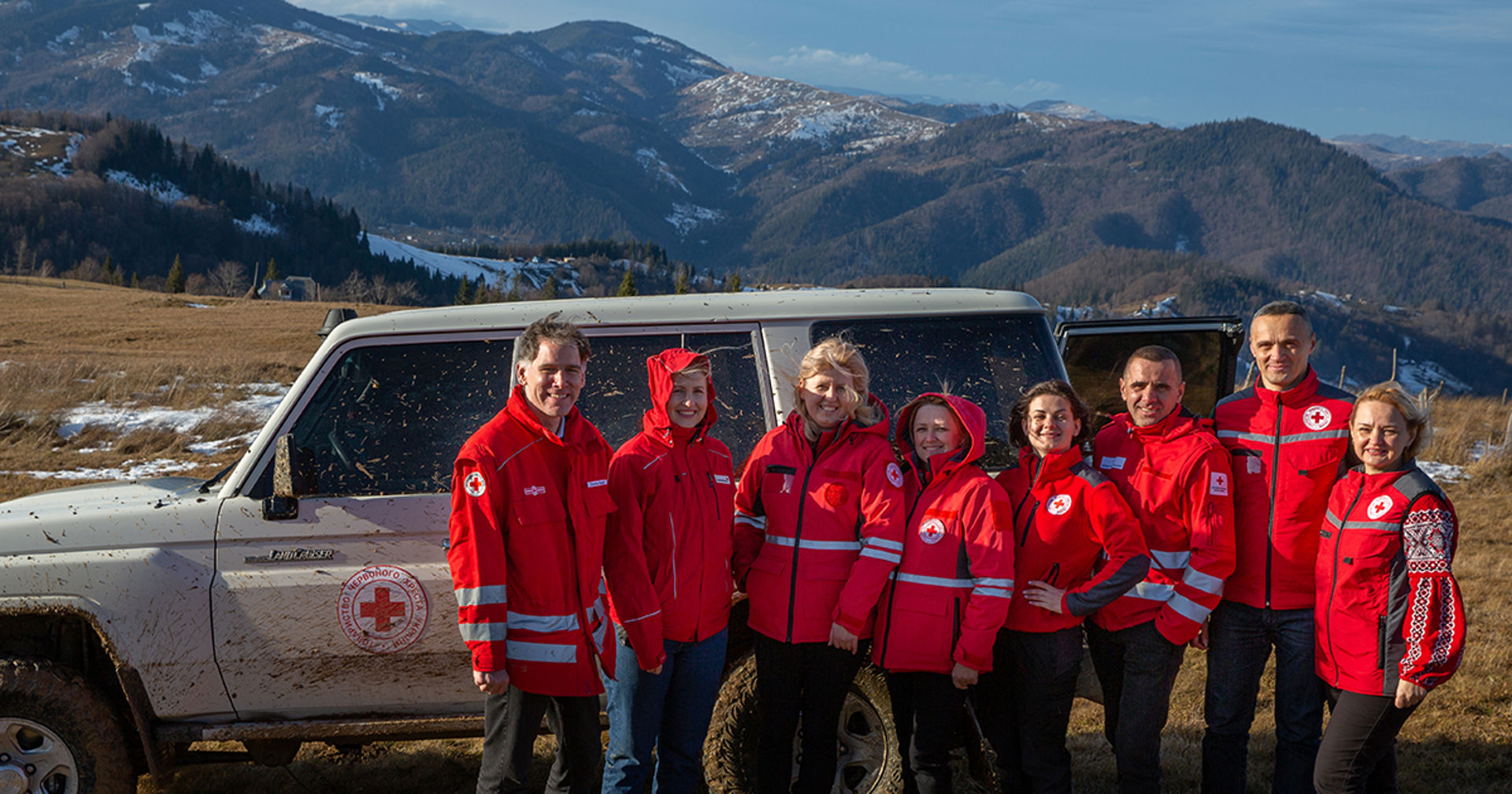
The only healthcare services available
Deep in the mountains of Chernivtsi, news from the front and of missile attacks is only heard on the radio. In the surgeon’s cottage in Konyatyn, the Red Cross’s arrival has been awaited by Marija Shenuz, Paraska Likaz and Varvara Yakovijehuk. They are part of an ethnic group called Hutsuls, who mainly live in the mountains on both sides of the Ukraine-Romania border.
If it weren’t for this service, we would have no way of getting to a doctor and we would have no medicines.
Nurse Nanalia Marusiak takes the old women’s blood pressures, while Doctor Oksana Slyzhuk checks that their regular medication is in order. The procedures also provide some time to catch up. Shenuz, Likaz and Yakovijehuk reminisce about the past. The area used to be self-sufficient, with people making a living out of agriculture.
The Red Cross’s mobile clinic is much praised by all three women – and to think that someone has come all the way from Finland to see them!
"If it weren’t for this service, we would have no way of getting to a doctor and we would have no medicines. There's no pharmacy up here in the mountains."
Before the journey continues from Konyatyn, there is still a stop to make at the cottage of Likaz’s elderly mother, which is located further up the slope. At the age of 90, the old lady Vasylyna is in such a poor condition that she spends most of her days inside the four walls of her home.
After that, it is time to move on. The round is long, and we won’t be back in Chernivtsi until late evening.
The mobile clinics are only a small part of all the Red Cross’s aid to Ukraine, but for their patients they are often the only healthcare services available.
text: Kimmo Holopainen
A longer version of the article was originally published in Punainen Risti magazine, issue 1/2025.

Follow our work in helping people affected by the humanitarian crisis in Ukraine
